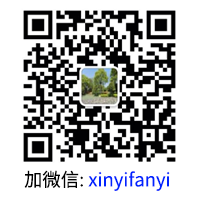Using dictionaries is a technical skill in itself. Not all students know how to use dictionaries appropriately. Words have different meanings in different contexts, and usually monolingual dictionaries are of utmost value in this regard. Students need a great deal of practice to find the intended meaning of words in a particular context, using monolingual dictionaries.
使用词典本身就是一种技巧。并非所有学生都知道如何正确地使用词典。同一个单词在不同的上下文中会有不同的含义,在这方面,单语词典通常会提供最有效的帮助。学生需要大量的练习,才能熟练地在单语词典中,找到具体上下文中某个单词的具体含义。
Translation trainees also need to be familiar with the syntax of indirect speech and various figures of speech in the source language such as hyperbole, irony, meiosis, and implicatures. Awareness of these figures of speech will reinforce students’ creativity and change their passive knowledge into active skill.
翻译实践者还应熟悉间接引语的句式,和源语言中各种修辞手法,如夸张、反语、缓叙和言外之意。掌握这些修辞手法能够增强学生的创造力,并将他们的被动知识转化为主动技能。
While there is a strong emphasis on developing source and target language competencies, the ways in which students can develop them should not be neglected. Group work and cooperation with peers can always lead the translating process to better results. Students who practice translation with their peers will be able to solve problems more easily and will also more rapidly develop self-confidence and decision-making techniques (Razmjou, 2002). Although there is a possibility of making mistakes during group work, the experience of making, detecting, and correcting mistakes will make the students’ minds open and alert.
尽管我们一再强调培养源语言和目标语言的重要性,具体方法也不容忽视。团队合作和协作总能产生更好的翻译效果。和同伴一起联系翻译的学生解决问题的能力更强,并能更快速地培养自信心和决策技巧(Razmjou, 2002)。尽管团队合作不能避免错误,但犯错误、发现错误和改正错误的经验,能让学生保持开放的头脑,并能时刻警惕错误。
Another important point is that successful translators usually choose one specific kind of texts for translating and continue to work only in that area; for example a translator might translate only literary works, scientific books, or journalistic texts. Even while translating literary works, some translators might choose only to translate poetry, short stories, or novels. Even more specific than that, some translators choose a particular author and translate only her or his works. The reason is that the more they translate the works of a particular author, the more they will become familiar with her or his mind, way of thinking, and style of writing. And the more familiar is the translator with the style of a write, the better the translation will be.
还有一点非常重要,成功的译员通常选择一种类型的文本,并且仅翻译这一领域的文章。例如,某译员可能只翻译文学作品,科学书籍或新闻文本。即便是翻译文学作品,有些译员也可能只选择翻译诗歌、短篇小说或长篇小说。更有甚者,某些译员可能只翻译某一作者的作品。这么做的原因在于,翻译某一作者的作品越多,译员就越了解作者的思想,思考的方式和写作风格。译员越熟悉作者的风格,翻译就越驾轻就熟。
Translation needs to be practices in an academic environment in which trainees work on both practical tasks under the supervision of their teachers and theoretical aspects to enhance their knowledge. In academic environment, recently published articles, journals and books on translation are available to the trainees, who thus become familiar with good translators and their work by reading them and then comparing them with the original texts. In this way, trainees will develop their power of observation, insight, and decision-making, which in turn will lead them to enhance their motivation and improve their translation skills.
翻译要在良好的学术氛围中进行,翻译实践者一方面需要在导师的监督下,进行翻译任务的实践,另一方面需要学习理论,增强知识。在学术环境里,翻译实践者可以获得最新发表的翻译类文章、期刊和书籍,并且通过对照阅读,了解并熟悉优秀的翻译家和他们的作品。这有助于翻译实践者培养观察力、洞察力和决策力,并鞭策他们不断进步,提升翻译技巧。
Therefore, translation studies have now been recognized as an important discipline and have become an independent major, separate from foreign-language studies, in universities. This reflects the recognition of the fact that not everybody who knows a foreign language can be a translator, as it is commonly and mistakenly believed. Translation is the key to international understanding. So in this vast world of communication and information overload, we need competent translators who have both the theoretical knowledge and practical skills to do their jobs well. The importance of theoretical knowledge lies in the fact that it helps translators acquire an understanding of how linguistic choices in texts reflect other relationships between senders and receivers, such as power relationships, and how texts are sometimes used to maintain or create social inequalities (Fairclough, 1989).
因此,翻译研究现在已经被公认为大学里一个重要的学科,并且已经从外国语研究分离出来,成为一个独立的专业。这也反映出了人们已经逐渐意识到,并非所有懂外语的人都能成为翻译家的;而普遍的错误观点是,懂外语就会做翻译。翻译是促进国际交流的钥匙。在这个沟通和信息过载的广袤世界里,我们需要优秀的翻译家,他们不仅需要掌握理论知识,还应具备良好的实践技能。理论知识的重要性在于,它帮助译员了解文本中的语言选择是如何反映出信息发送方和接收方之间的关系的,如权力关系;它还帮助译者了解为何文本有时候被用作维护或创造社会的不平等(Fairclough, 1989)。
Finally, it is important to know that it takes much more than a dictionary to be a good translator, and translators are not made overnight. To be a good translator requires a sizeable investment in both source and target languages. It is one of the most challenging tasks to switch safely and faithfully between two universes of discourse. Only a sophisticated and systematic treatment of translation education can lead to the development of successful translators. And the most arduous part of the journey starts when translation trainees leave their universities.
最后需要强调的是,要成为优秀的译员,单靠一本字典是不够的,成为翻译家是不可能一蹴而就的。要成为一名优秀的译员,需要在源语言和目标语言上投入大量的精力。在两种语言之间进行安全地、忠实地切换,是最具挑战性的工作,只有经过复杂、系统的翻译培训,才能造就成功的译员。当译员结束培训,离开大学时,最艰辛的旅程才刚刚开始。






